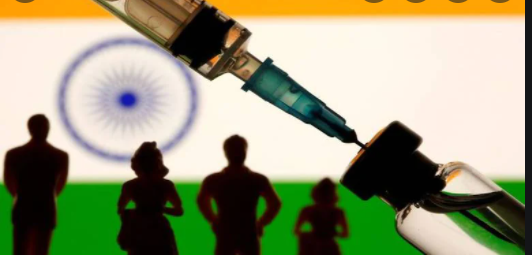Virendra Pandit
New Delhi: With the Covid-19 infections dwindling, India had started exporting vaccines in January 2020. By March, it was exporting to around 100 countries under different categories.
Then the pandemic’s second, and fiercer, wave struck, forcing New Delhi to stop vaccine exports in April.
A similar situation is surfacing now. Pandemic numbers are considerably down, at least officially. The World Health Organization (WHO) and the Gates Foundation have applauded India’s vaccination program in which some 750 million people have received at least one dose. And the WHO has also warned of increased risks of virus variants evading vaccines.
Indian experts have warned that a third Covid-19 wave could hit the country soon, the latest prediction being the next month October, with the festival season on. The Centre is also gearing up for the crucial Assembly polls due in five states, including Uttar Pradesh and Gujarat, next year.
Meanwhile, the highly transmissible Delta variant of the killer virus is surging in nearly 200 countries, including America, and even forced China to clamp lockdowns in two industrial towns in Fujian province this week after fresh infections. Beijing also re-imposed severe restrictions in the affected areas.
Media reports suggested on Wednesday that India may decide to resume exporting vaccines, ahead of Prime Minister Narendra Modi’s US visit in the last week of September where he will, among others, address the UN General Assembly and participate in the Quad leaders’ Summit.
US President Joe Biden’s administration, which has been in talks with New Delhi on the vaccine exports issue, may offer PM Modi a higher-profile role at an upcoming Covid-19 Global Summit in New York if he agrees to restart the export of vaccines, reports said.
The US is “quietly pressuring” India, the world’s largest vaccine exporter, to resume its vaccine supply to the world through the global vaccination organization, COVAX, which is an important part of the Biden administration’s strategy to contain the spread of the virus globally.
Modi will participate in the first in-person Summit of leaders of the four Quad countries, including the US, Australia, and Japan, on September 24. Biden will address the UNGA in New York on September 21. Apparently, Washington wants New Delhi to be “positive” on vaccine exports so Biden could score some points in the UN.
The Quad leaders had met virtually in March and agreed to work closely on Covid-19 vaccines. But the initiative stalled in April after India was hit by a catastrophic wave of pandemic infections and forced it to halt vaccine exports.
Washington had diverted its own supply of raw materials for vaccine production to India in April, given its urgent needs, a US official said.
“We commend India for being one of the largest manufacturers for safe and effective Covid-19 vaccines globally, and we note that COVAX and the world rely heavily on India’s contributions.”
While India was likely to resume vaccine exports only in 2022, media reports on Wednesday claimed that New Delhi may prepone the decision and restart exports soon.
“India is considering resuming exports of Covid-19 vaccines soon, mainly to Africa, as it has partly immunized a majority of its adults and supplies have surged,” the report said.
India has planned to vaccinate all of its 944 million adults by December 2021 and has so far given at least one dose to 62 percent of them.
The WHO said on Tuesday it was discussing with India to resume supplies to global vaccine-sharing platform COVAX. “We have been assured that supply will restart this year,” senior WHO official Bruce Aylward said.
“We are hoping we can get an assurance it can start even faster than later this year, and in the coming weeks.”
Before India stopped exports in April, it had already donated or sold 66 million doses to nearly 100 countries.
The African Union on Tuesday accused global manufacturers of denying them a fair chance to buy vaccines and urged India to lift export restrictions.
Out of 5.7 billion doses of coronavirus vaccines administered around the world, only two percent have been in Africa.

